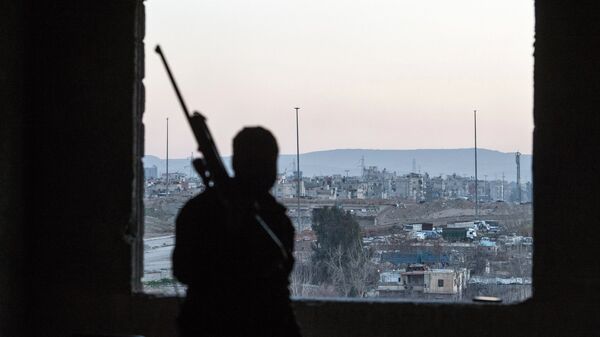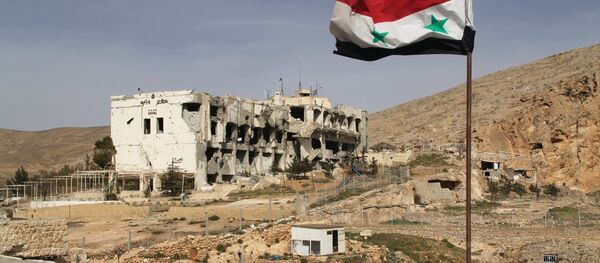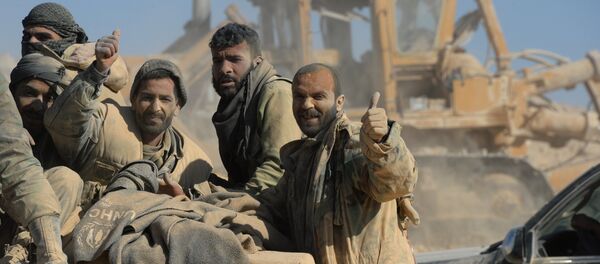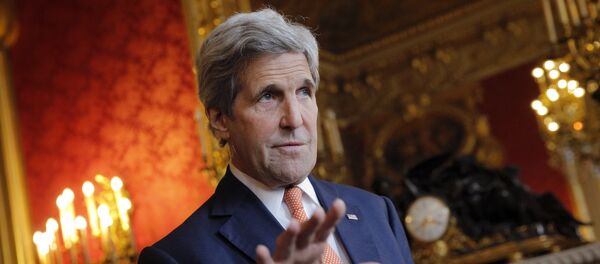"Beyond the [anti-Daesh] campaign, there is also a preventative counterterrorism campaign that needs to be waged in other areas of the country, as al-Qaeda and its enablers in the Syrian armed opposition seek to build a sharia state based on the teaching of influential global jihadi theorists," the researcher at the Center for a New American Security noted, referring to al-Nusra Front and Ahrar al-Sham.
Russia, Iran, Syria and several other countries consider Ahrar al-Sham to be a terrorist organization. In late April, Moscow asked the Counter-Terrorism Committee of the UN Security Council to put Ahrar al-Sham on its terrorist list, but the United States blocked the initiative.
Moreover, a senior member of Ahrar al-Sham is said to have visited Washington in December. Labib al-Nahhas, foreign affairs chief for the group, reportedly met with lobbyist and experts on the Middle East while in the US.
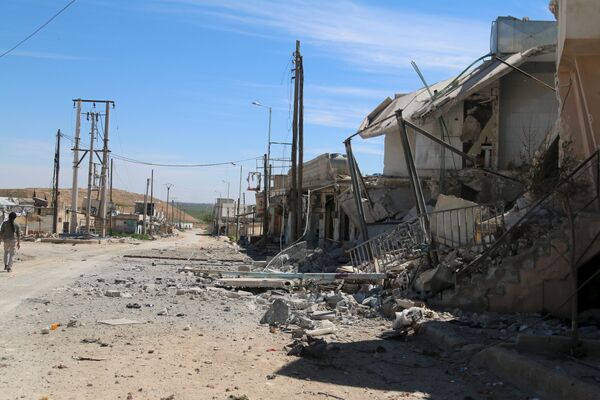
Formed in 2012, al-Nusra Front has been fighting to overthrow Bashar al-Assad and establish an Islamic state in Syria. Al-Nusra Front has been added to the UN list of designated terrorist groups and is considered as such by Russia and the US. It is estimated to have approximately 15,000 fighters.
Al-Monitor echoed this sentiment, saying that al-Nusra Front "has intensified its own attacks throughout Syria, in direct violation of the ceasefire, sometimes in collaboration with other Salafi groups. Most notably, the al-Qaeda affiliate is reportedly seeking to establish its own 'emirate' around Idlib and is wooing Salafi fellow travelers to its cause."
As a result of these efforts, al-Nusra Front and Ahrar al-Sham launched a joint attack on the Alawite village of Zara, located in the Hama province, killing 19 civilians. The Sana news agency described the tragedy that took place earlier in May as a "massacre."
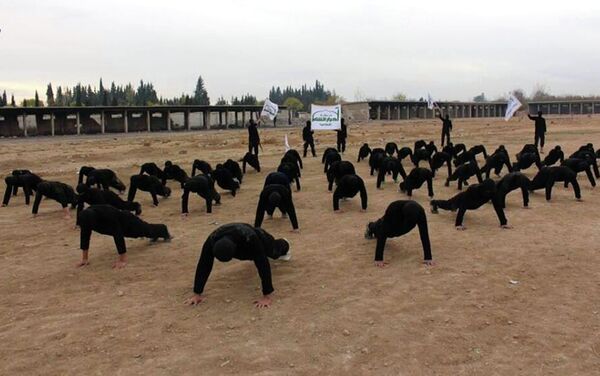
"It is a matter of record, not speculation, that Ahrar al-Sham and Jaish al-Islam have flourished and 'commingled' with [al-Nusra Front], as well as committing sectarian atrocities of their own," al-Monitor concluded.
"The fact of the matter is that although the United States has provided military assistance to individual Syrian armed opposition groups led by 'trusted commanders' since 2012, reportedly via the CIA, it has not acted forcibly enough to leverage its influence within the rebel movement to prevent the development of an al-Qaeda proto-state in northern Syria," Heras observed.
"Recognizing this reality, a pragmatic, responsible and forward-leaning US strategy in Syria will need to look less at Assad, and more at the threats that are developing within the Syrian armed opposition under the watch of the United States and its regional partners," he added.

